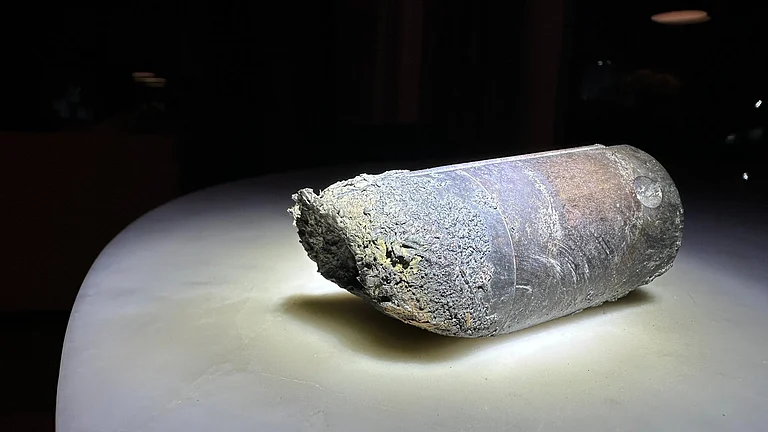In recent years, concerns about space debris, also known as cosmic clutter, have escalated as scientists warn of its increasing prevalence in Earth's orbit. This issue was underscored by a recent incident where a piece of space junk crashed into a home in Florida.
NASA Ex-Astronaut Explains Growing Threat Of Space Debris
Terry Virts, a former NASA astronaut and retired US Air Force colonel, highlighted the severity of the problem, citing NASA's estimate of around 100 million pieces of space junk currently orbiting Earth.

CNN interviewed Terry Virts, a former NASA astronaut and retired US Air Force colonel, to shed light on the situation.Virts highlighted the severity of the problem, explaining that space trash, including broken satellites and remnants of rocket boosters, poses a growing threat. He cited NASA's estimate of approximately 100 million pieces of space junk currently orbiting Earth.
Regarding the Florida incident, Virts revealed that the debris, which landed in Naples, Florida, was originally from the International Space Station (ISS). Despite NASA's analysis indicating that it would burn up upon reentry, the size of the object, comparable to an SUV, raised concerns about potential impact.
While burning up upon reentry is the desired outcome for space debris, Virts noted that not all pieces disintegrate completely. Factors such as size and composition can influence whether debris survives atmospheric entry. He emphasized that NASA's intention is not to dispose of debris haphazardly but cited instances where unforeseen circumstances, such as a scheduling conflict, led to the release of debris into orbit.
Addressing the challenge of cleaning up space debris, Virts acknowledged the absence of a viable solution. With debris traveling at high speeds in different directions, the task of removal is daunting. Instead, space agencies focus on tracking debris and maneuvering spacecraft, like the ISS, to avoid collisions. Virts recounted his experience as ISS commander, where maneuvers were necessary to evade debris generated by military activities.
Virts cautioned against further proliferation of space debris, particularly through military actions, emphasizing the long-lasting impact of such actions on space operations. While cleaning up existing debris remains a challenge, proactive measures to prevent additional debris generation are crucial for ensuring the safety of space missions and infrastructure.
- Previous Story
 US Elections 2024: Tim Walz, JD Vance To Go Head-To-Head In VP Debate | Key Issues To Watch Out For
US Elections 2024: Tim Walz, JD Vance To Go Head-To-Head In VP Debate | Key Issues To Watch Out For - Next Story


























